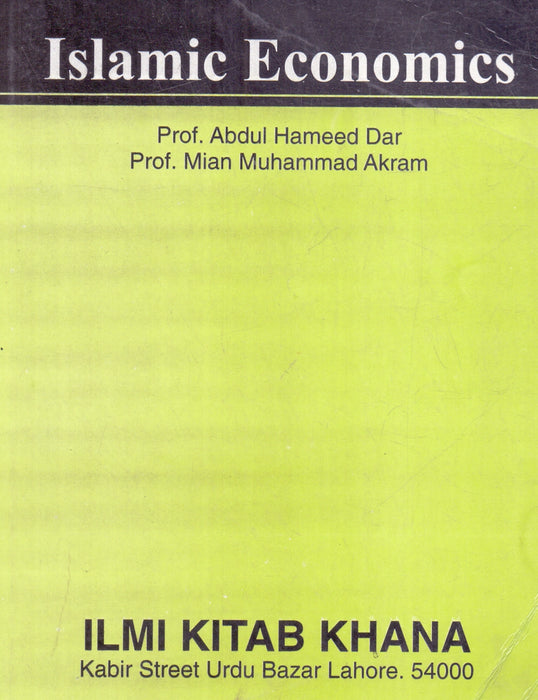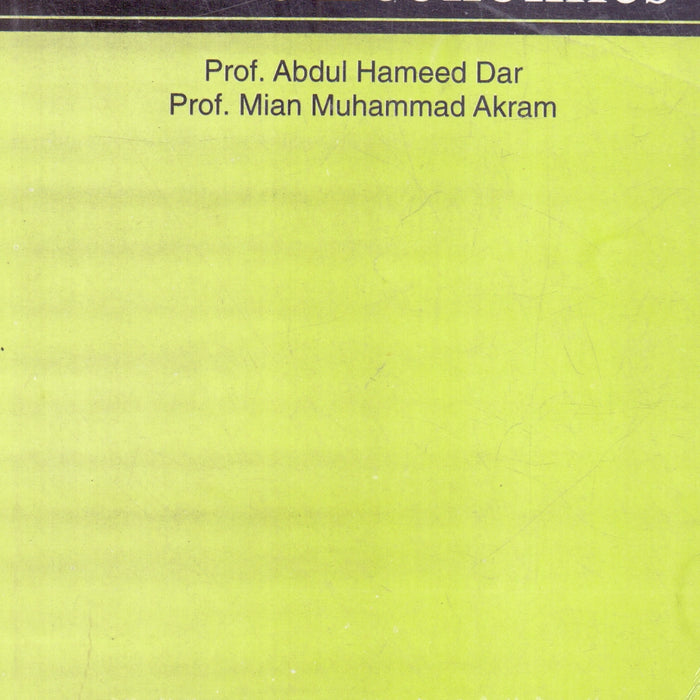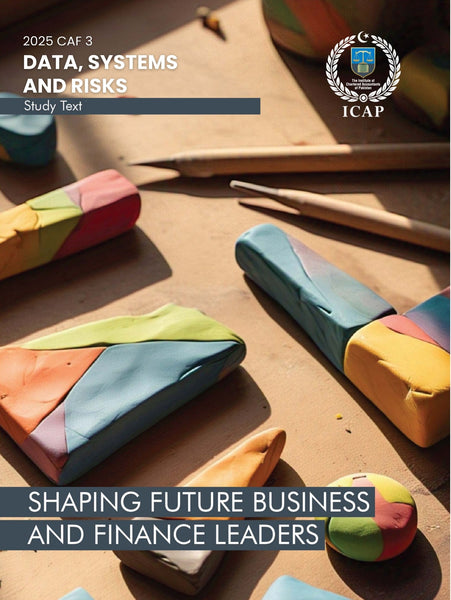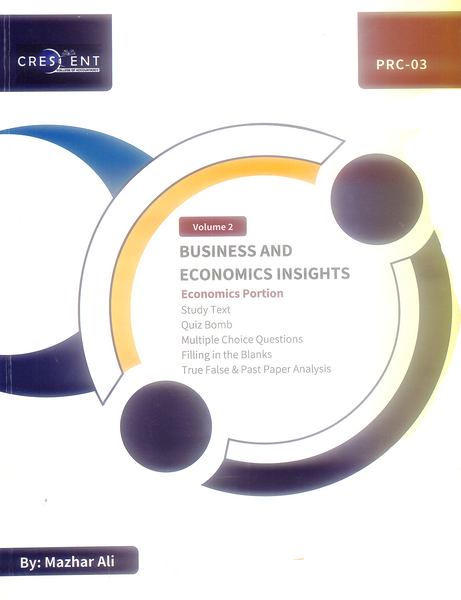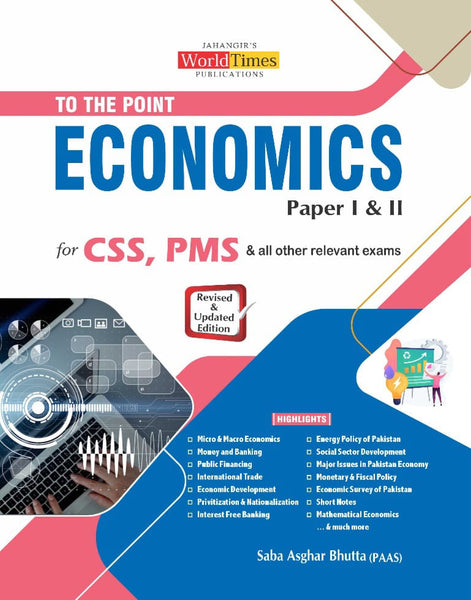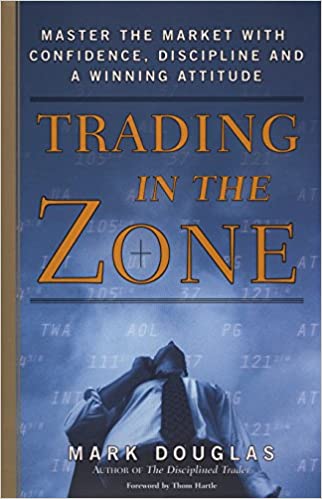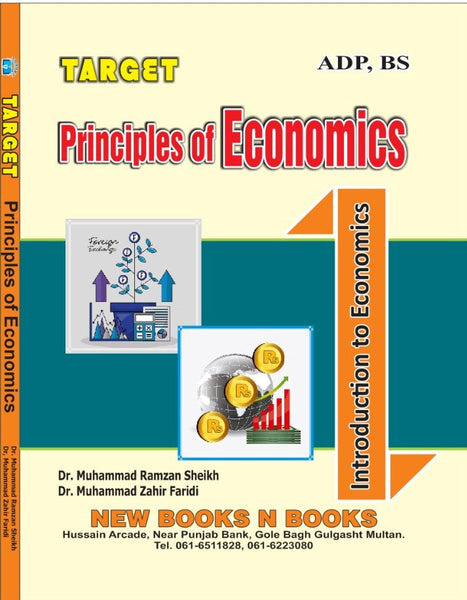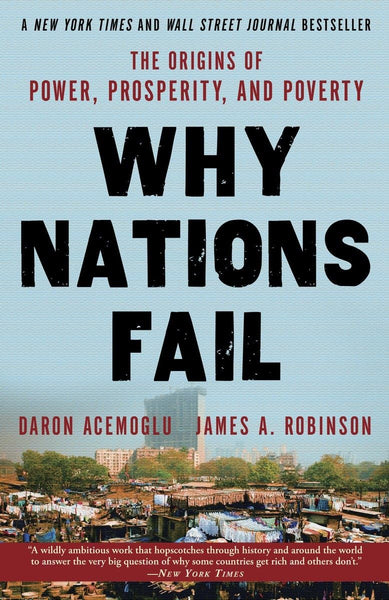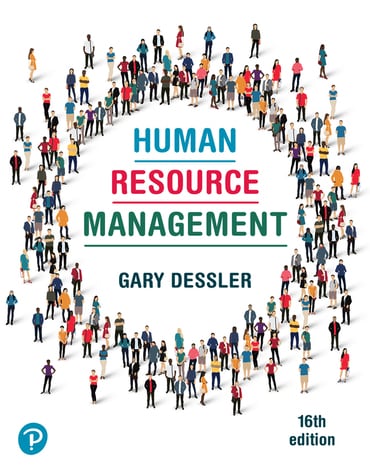Islamic Economics by Abdul Hameed Dar - ILMI
- Publisher: ILMI KITAB KAHANA
- Availability: In Stock
- SKU: 00197
- Number of Pages: 517
Rs.850.00
Rs.895.00
Tags: best books , Best Selling Books , challenges in Islamic economics , contemporary Islamic economics , economic development in Islamic countries , economic empowerment in Islam , economic equity in Islam , economic justice in Islam , economic principles of Quran , economic reforms in Islam , economic stability in Islam , economic systems in Islam , ethical finance in Islam , ethical investments , ethics and economics in Islam , financial inclusion in Islam , good books , halal business practices , halal economy , halal finance industry , halal investments , interest-free banking , interest-free economy , Islamic asset management , Islamic banking , Islamic banking and finance , Islamic banking principles , Islamic business ethics , Islamic business law , Islamic business models , Islamic capital markets , Islamic corporate governance , Islamic economic challenges , Islamic economic development , Islamic economic framework , Islamic economic growth , Islamic economic history , Islamic economic institutions , Islamic economic jurisprudence , Islamic economic models , Islamic economic objectives , Islamic economic philosophy , Islamic economic policy , Islamic economic reforms , Islamic economic research , Islamic economic strategies , Islamic economic sustainability , Islamic economic theory , Islamic economic thought , Islamic Economics , Islamic finance , Islamic finance education , Islamic finance instruments , Islamic finance regulations , Islamic financial architecture , Islamic financial crisis management , Islamic financial ethics , Islamic financial innovations , Islamic financial institutions , Islamic financial markets , Islamic financial products , Islamic fiscal policy , Islamic insurance (takaful) , Islamic investment funds , Islamic law and finance , Islamic macroeconomics , Islamic market structure , Islamic microfinance , Islamic monetary policy , Islamic social justice , Islamic socialism , Islamic stock markets , Islamic taxation , Islamic trade laws , Islamic trade practices , Islamic wealth distribution , Islamic wealth management , maqasid al-Shariah , principles of Islamic economics , Prof. Abdul Hameed Dar , Prof. Mian Muhammad Akram , profit and loss sharing , profit-sharing in Islam , riba prohibition , risk-sharing in Islam , role of ethics in economics , role of Islamic scholars in economics , role of waqf in economics , role of zakat in economics , Shariah governance in finance , Shariah-compliant economics , Shariah-compliant financial services , Shariah-compliant investments , socio-economic balance in Islam , socio-economic justice , sustainable economy in Islam , waqf and Islamic finance. , wealth management in Islam , wealth redistribution , zakat system
Islamic Economics by Prof. Abdul Hameed Dar and Prof. Mian Muhammad Akram, published by ILMI, provides a comprehensive exploration of the principles and concepts underlying Islamic economic theory. The book presents an alternative to conventional economic systems by aligning economic practices with Islamic teachings derived from the Quran and Hadith. It covers key areas such as interest-free banking, zakat, ethical trade, and the prohibition of riba (usury). The authors aim to highlight how Islamic economics promotes social justice, economic equality, and ethical business conduct. It is a valuable resource for students, professionals, and anyone interested in understanding the intersection of economics and Islamic principles.
Key Points:
-
Principles of Islamic Economics
The book outlines the fundamental principles of Islamic economics, including the prohibition of riba (interest), the encouragement of risk-sharing, and the focus on welfare and social justice. -
Interest-Free Banking
A significant part of the text is dedicated to explaining Islamic banking and finance, which operate without charging or paying interest, relying instead on profit-sharing models like mudarabah and musharakah. -
Zakat and Redistribution of Wealth
The authors explain how zakat (charitable giving) is a core component of Islamic economics, functioning as a tool for wealth redistribution and poverty alleviation. -
Prohibition of Riba (Usury)
Islamic economics prohibits riba (usury), which refers to excessive or exploitative interest rates, as it is considered unjust and harmful to society. The book discusses how this prohibition shapes Islamic financial systems. -
Ethical Trade and Business Practices
Islamic economics emphasizes ethical business practices, fairness, and transparency in trade. The authors highlight the importance of honesty, avoiding fraud, and ensuring fair treatment in all business transactions. -
Social Welfare and Economic Justice
The book stresses that Islamic economics aims to create a balance between individual freedom and collective welfare, ensuring economic justice and the equitable distribution of resources. -
Role of the State
The authors discuss the role of the state in an Islamic economic system, particularly in regulating markets, ensuring the provision of public goods, and supporting economic stability through social programs. -
Islamic Insurance (Takaful)
Takaful, or Islamic insurance, is presented as an alternative to conventional insurance. It operates on the principles of mutual assistance and shared risk, aligning with Islamic values of cooperation and solidarity. -
Comparative Analysis with Conventional Economics
The book provides a comparative analysis of Islamic economics and conventional economic systems, highlighting the ethical and moral dimensions that distinguish Islamic practices from secular approaches. -
Relevance in the Modern World
The authors explore the relevance and application of Islamic economics in the modern world, discussing how it can address contemporary economic challenges while promoting fairness, sustainability, and social justice.
Conclusion
Islamic Economics by Prof. Abdul Hameed Dar and Prof. Mian Muhammad Akram is a thorough examination of the economic principles rooted in Islamic teachings. It offers a valuable alternative to conventional economic models by emphasizing fairness, ethical business conduct, and the welfare of society as a whole. This book is an essential resource for students, academics, and professionals seeking to understand how Islamic economics can be applied to modern financial systems.
════ ⋆★⋆ ═══
Writer ✤
Prof. Abdul Hameed Dar, Prof. Mian Muhammad Akram
Publishers ✤ ILMI KITAB KAHANA

